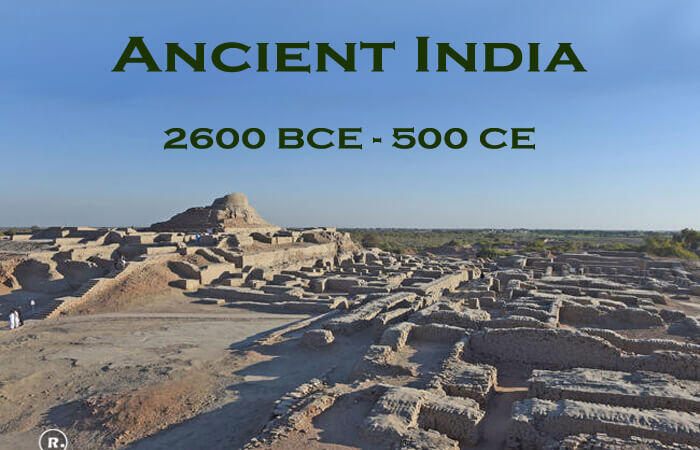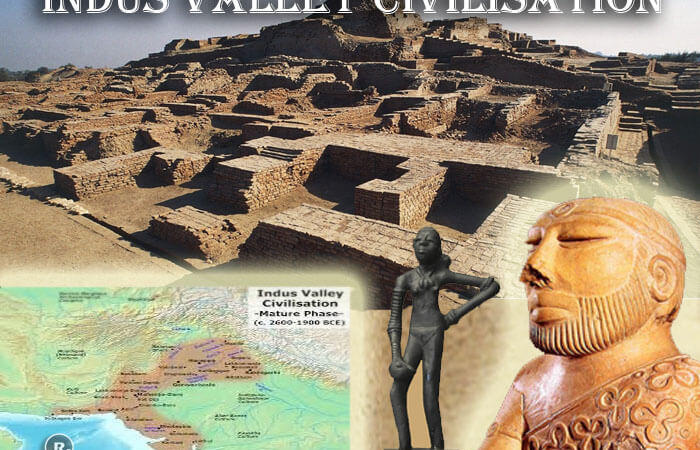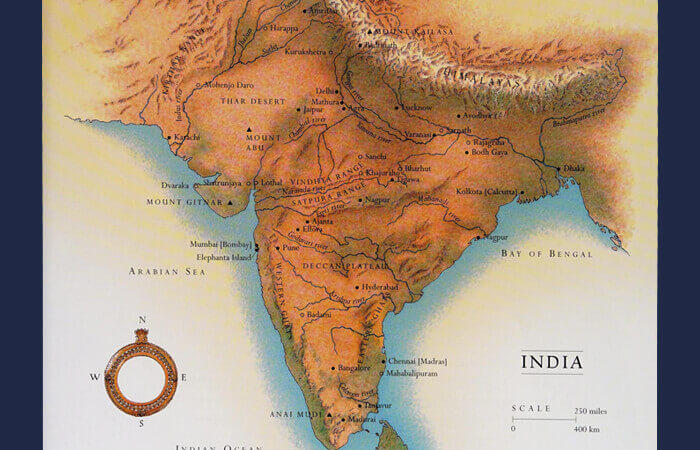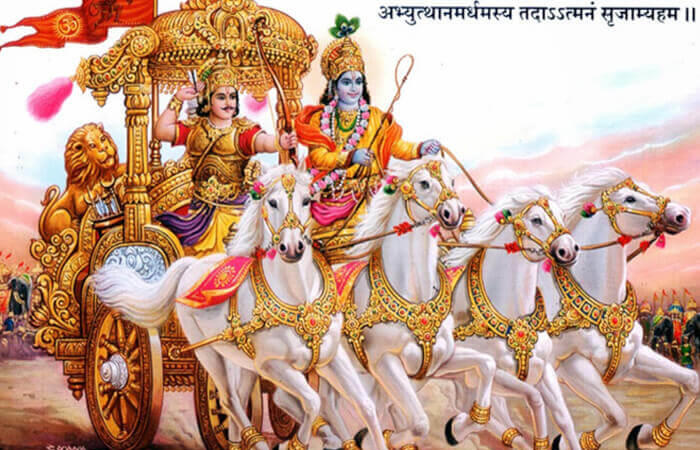A. P. J. Abdul Kalam (Missile Man)
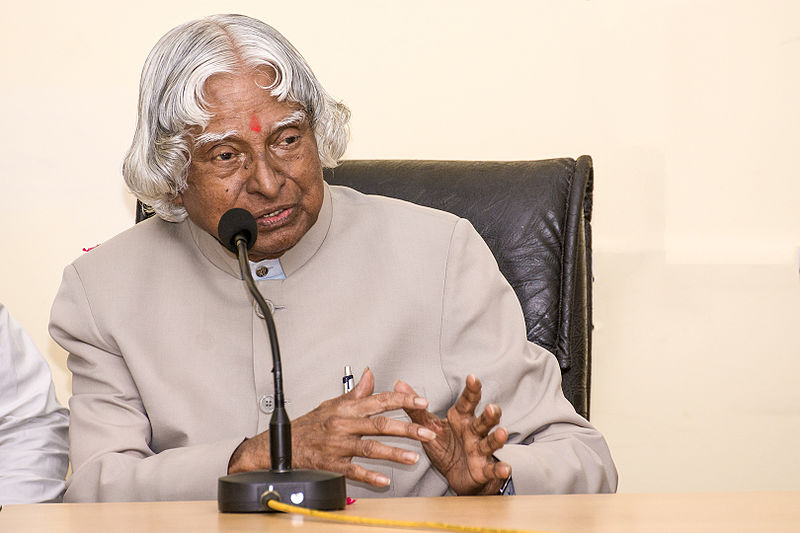
A. P. J. Abdul Kalam is popularly known as “Missile man of India” and “people’s president” was first ever president of India who was a bachelor and a vegetarian. He was a specialized Aeronautical engineer and spent four decades as a scientist in the Defence Research and Development Organisation (DRDO) and Indian Space Research Organisation (ISRO). He played an important role in 1998 Pokhran-II nuclear test and was the recipient of several awards including “Bharat Ratna“.
Life
Born as Avul Pakir Jainulabdeen Abdul Kalam on 15 October 1931 in Rameswaram, Tamil Naidu in a Muslim family. His father Jainulabdeen was a boat owner who used to ferry Hindu pilgrims between Rameswaram and Dhanushkodi.
His ancestors were very wealthy traders and landowners. The family was known as “Mara Kalam Iyakkivar” (Wooden boat-steerers). However, their business failed and when Kalam was a child their family has became poor and he used to work as a newspaper boy.
He was a bright and hardworking student in school and after completing his education he graduated in Physics and studied Aerospace engineering in Madras Institute of Technology.
After graduating he joined Defence Research and Development Organisation (DRDO) as a scientist and later got transferred to Indian Space Research Organisation (ISRO), where he successfully deployed Rohini Satelite by India’s first Satellite launch vehicle (SLV-III).
After working in ISRO for 2 decades and mastering launch vehicle technology, Dr. Kalam developed Indigenous Guided Missiles at the Defence Research and Development Organisation (DRDO).
He was responsible for the development of AGNI and PRITHVI Missiles. He was the scientific advisory to the defense ministry from July 1992 to December 1999. During which the Pokhran-II nuclear test was carried out, which made India a Nuclear weapon state.
Dr. Kalam was also involved in teaching and research tasks at Anna University, Chennai. He also wrote books like “Wings of Fire“, “India 2020 – A vision for the new millennium“, “My journey” and “Ignited Minds – Unleashing the power within India“. His books have been translated into many Indian languages.
Kalam served as the 11th President of India, succeeding K. R. Narayan and his term lasted from 25th July 2002 to 25th July 2007. He was affectionately known as the people’s president.
He died due to cardiac arrest at Shillong on 27 July 2015, while he was there to deliver a lecture on “Creating a livable planet Earth” at the Indian Institute of Management Shillong. A memorial in memory of Dr. Kalam was inaugurated in 2017 in the island town of Rameswaram, Tamil Naidu.
Abdul Kalam 10 Rules for Success
1. Learn how to handle failure
2. Imagine the outcome
3. Be Righteous
4. Fight to be you
5. Breakthrough limitations
6. Keep learning
7. Be a teacher
8. Work with integrity
9. Follow your dreams
10. Inspire others
Top 15 Quotes of Abdul Kalam
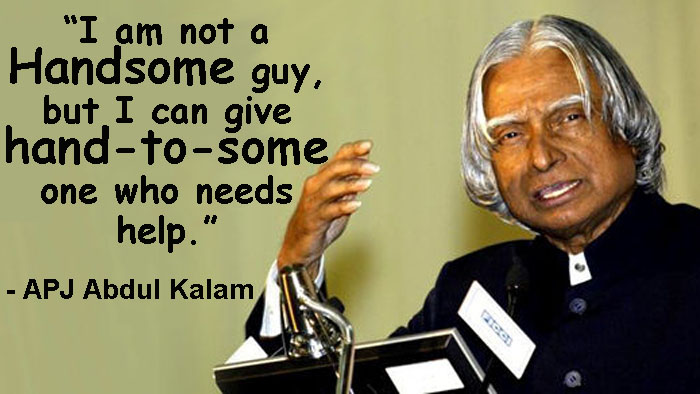
- You have to dream before the dream comes true.
- Dream, dream, dream. Dreams transform into thoughts and thoughts result in action.
- If you want to shine like the sun. First, burn like the sun.
- Creativity is seeing the same thing but thinking differently.
- If you fail, never give up because FAIL means “First Attempt In Learning”.
- To succeed in your mission, you must have single-minded devotion to your goal.
- Thinking Should become your CAPITAL ASSET, no matter Whatever ups and downs You Come across in your Life.
- You cannot change your future, but you can change your habits, and surely your habits will change your future.
- Success is when your signature turns into your autograph.
- Man needs difficulties because to enjoy the success that they need to.
- Confidence and hard work is the best medicine to kill the disease called failure. it will make you a successful person.
- Love Your Job but don’t love your company, because you may not know when your company stops loving you.
- The bird is powered by its own life and by its motivation.
- The small aim is a crime; have great aim.
- Life is a difficult game. You can win it only by retaining your birthright to be a person.
Suggested Read: World Student’s Day

